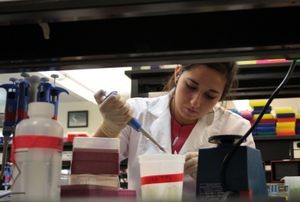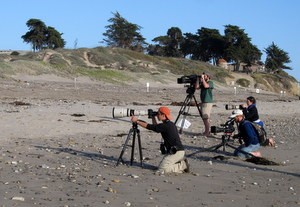There are many higher education options for those wishing to pursue birds as a career. Countless schools offer excellent programs, and most schools have a faculty member who studies birds. Indeed, the options can be overwhelming as you begin college searching. Below are a few considerations to help narrow your search and answer some frequently asked questions.
What are you interested in as a career?
Obviously, you don’t need to decide your life’s trajectory in high school, but there are things to keep in mind when college searching. If you wish to enter wildlife management at the governmental level, look for schools with strong wildlife biology programs. If you want to pursue research, a biology program may be best. If you enjoy art and photography, look for schools with both art programs and course offerings in natural history topics.
Different careers require different levels of education. If you are interested in academia-centered research, grad school is likely in your future. In contrast, an undergraduate degree can be sufficient for tour guiding, field work, and other careers centered away from the pure sciences.
Large schools versus small schools
Many students worry about finding a school of the right size. Different sized colleges each have their advantages and disadvantages. Small schools without graduate students have only professors teaching courses, and may have more sense of a unified student body. However, they often have fewer research opportunities and specialized student organizations. In contrast, large schools with graduate students have ample research opportunities through both professors and grad students. Although the student body is larger, it is easy to find a specialized niche where you get to know a group of like-minded peers.
Research Opportunities
Learning what types of research professors and graduate students do can give you a sense of what opportunities may be available. For example, do most of the professors’ research focus on biochemical questions? If so, expect that most research positions through them would be in biochemistry. Some colleges have their own field station where students and faculty conduct field research. Not only do these stations provide a great venue for summer internships, but they allow students to get research experience in the field, rather than only in the lab.
College Visits
The stereotypical college visits involves a campus tour, attending admissions information sessions, and perhaps touring a dormitory. While these activities are useful, they often lack significant relevance to your decision. Rather, there are several additional things to consider doing during campus visits. First, try to meet with a faculty member involved in your field. If this person works with birds, all the better! Discuss with them opportunities for undergraduates, course offerings, requirements for the major, and any interesting student organizations. Additionally, try to attend a class or two: professors are generally happy to host visiting students in their classrooms. If you can, also try to speak with current students about their involvements, suggestions, and comments about the school. And lastly, of course, go birding!
Learn more about applying to Cornell University here




